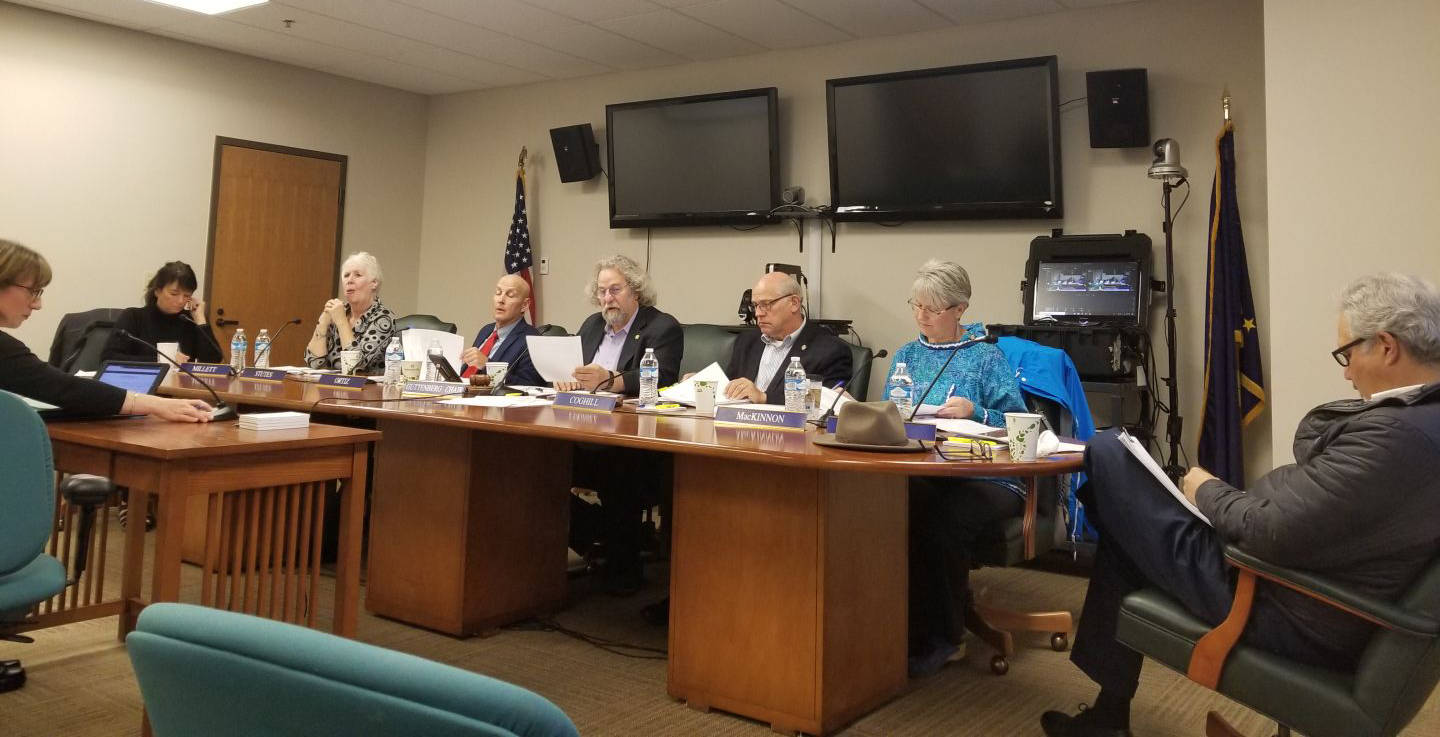Correction: The previous version of this article misstated when the Legislative Council closed the Unalaska LIO. It was in August, not last year.
Alaska lawmakers are considering a proposal to reduce their per-diem expense payments, but they are not likely to vote on the proposal before the Nov. 6 general election.
On Friday morning, the Legislative Council — a joint House-Senate body that makes decisions for lawmakers while the Legislature is out of session — declined to vote upon a plan that would reduce per diem from the $302 per-day federal rate.
While the council has a meeting scheduled in October, that is expected to deal with only a single matter and not include the per-diem discussion, which will wait until November, said Rep. David Guttenberg, D-Fairbanks and chairman of the Legislative Council.
Guttenberg said by phone after the meeting that political considerations had nothing to do with the delay. Lawmakers simply ran out of time, he said. Legislative offices close at noon on Fridays because of cost-cutting measures.
“There’s always a question of the political motive, but all of the proposals were to lower the per diem. There was nothing that was going to accept the federal per diem,” he said. “Politically, it would have been advantageous to get to it.”
Rep. Charisse Millett, R-Anchorage, is also a member of the Legislative Council.
“I do not believe anything Rep. Guttenberg is doing is politically motivated at all,” she said.
Under the Legislature’s travel and per diem policy, lawmakers receive compensation for expenses every day they are away from home during legislative sessions. The only exception, instituted earlier this year, is for lawmakers who live within 50 miles of the Capitol or another place where the legislature is meeting. Those lawmakers receive no per diem.
For every other lawmaker, expense payments are set by the federal per diem rate for Juneau. On Sept. 1, that rate rose from $275 per day to $302 per day. In a constitutional-length 121-day session, a lawmaker would receive $36,542 for meals, lodging and incidental expenses under the new, higher rate.
That’s an increase of more than $3,200 for each of the 60 lawmakers, unless it’s changed before the start of the session.
Per diem is paid atop the annual legislative salary of $50,400 and is intended to compensate for the cost of living in Juneau for part of the year. While salaries pay expenses at home, per diem pays for rentals, food and transportation away from home.
As the state budget has been slashed amid falling oil prices, per diem has become a contentious topic, though it makes up a tiny fraction of the state’s multibillion-dollar budget.
“We already know how the public feels about it. They made it pretty clear,” Millett said.
Guttenberg isn’t running for re-election this year and said he wants to see per diem reduced before lawmakers start collecting the higher rate in January.
Jessica Geary, director of the nonpartisan Legislative Affairs Agency, was prepared Friday to present three options: $213 per day, $263 per day, or $275 per day.
The $213 figure was what lawmakers had earned before the federal rate rose to $275. The $263 figure was an average of $213, $275 and the new $302 figure.
Guttenberg said he was also thinking of a fourth figure, an average of the three per diem rates before the most recent increase. The result would be somewhere in the neighborhood of $230 per day.
Guttenberg said he wants to see per diem go down, but he doesn’t want to see it go down so far that poor Alaskans cannot afford to serve in the legislature. This year, Rep. Sam Kito III, D-Juneau, cited the loss of per diem as a reason he was not running for re-election.
“For members coming back or not coming back, you don’t want to make it harder for people to go down there,” he said.
That said, Millett believes the council must make some cuts.
“The optics of trusting government are never going to get better until we lead by example,” she said.
Staffing remains cut
In other business Friday, the council voted against reversing cuts to the operating hours of the state’s Legislative Information Offices. Those offices are now closed on Friday afternoons as a cost-cutting measure.
In August, lawmakers closed the Unalaska LIO because no one was using it and because its manager retired. The council considered using money saved from the closure of the Unalaska office to extend the Friday hours of remaining offices.
That vote failed 6-6; eight votes were needed to approve the measure.
Closing the Unalaska LIO saves $106,000 per year, according to figures presented at the meeting. Extending office hours would have cost about $107,600.
• Contact reporter James Brooks at jbrooks@juneauempire.com or 523-2258.

